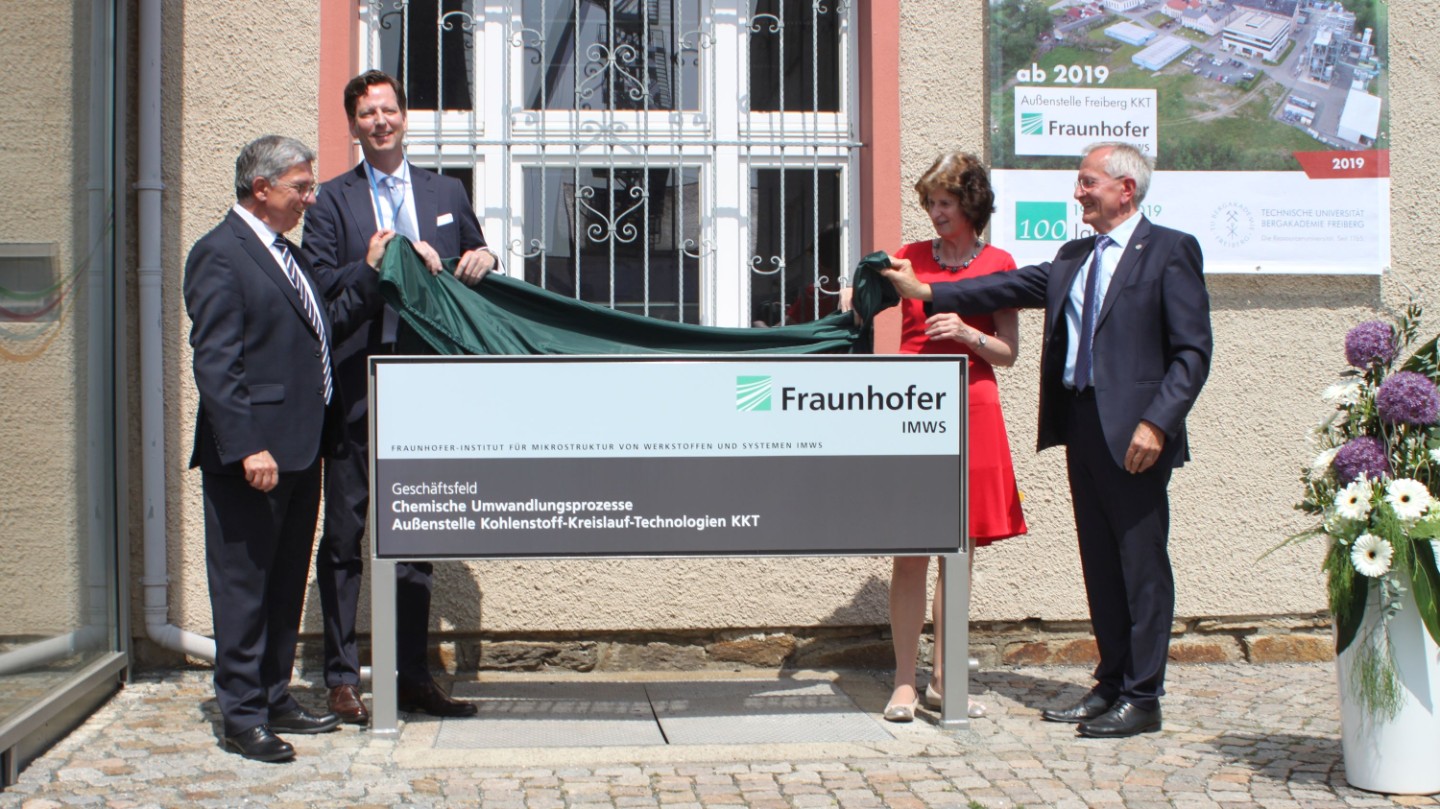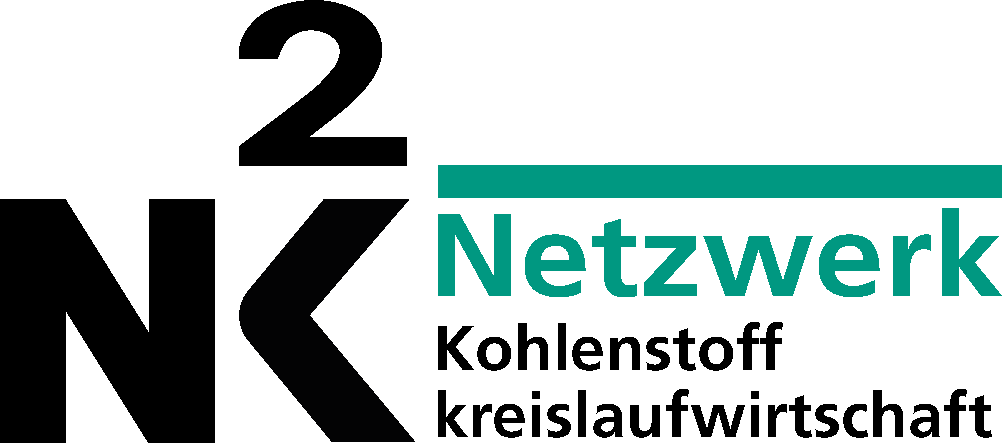Start-up funding for new research institute
A branch of the Fraunhofer Institute specializing in carbon cycle techologies opens at the TU Bergakademie Freiberg
In the future, research will be conducted at the TU Bergakademie Freiberg on the resource-friendly and climate-neutral use of carbon carriers. Yesterday, Dr. Eva-Maria Stange, the Minister of State at Saxony’s Ministry of Science and the Arts, approved the start-up funding for a research group on carbon cycle technologies. The new research unit is a branch of the Fraunhofer Institute Microstructure of Materials and Systems IMWS in Halle (Saale).

Carbon is a central building block of the economy and can be found in numerous products used in our daily lives. Industry’s demand for carbon is mainly satisfied through primary sources of carbon such as crude oil, natural gas or coal. In the future, researchers at the Institute of Energy Process Engineering and Chemical Engineering (IEC) at the TU Bergakademie and the Fraunhofer Institute IMWS intend to employ new processes and technologies on a large scale to enable the efficient and resource-friendly utilization of other carbon sources as low as possible in CO2 emissions. These will include plastic and biomass waste, but also renewable energies such as wind and solar power and green hydrogen.
“The new research group’s approach is exemplary, in as much as it takes a holistic view of the use of resources and implements solutions in Freiberg with practical relevance. The collaboration with the Fraunhofer Institute will also enable the visibility of this research work to be enhanced internationally and the inclusion of companies from Saxony and Germany which could benefit from the application of these ideas. In this way, starting from a scientific basis – building up and selectively developing local expertise – we can create added value in the region”, says the Minister of Science Dr. Stange.
“We are the leading institute in Europe for research and development in the field of the thermal-chemical conversion of primary and secondary sources of carbon, in particular coal, natural gas and carbon waste. In this way, we can develop economically viable and sustainable solutions to urgent issues affecting society”, says Prof. Bernd Meyer, the Director of the IEC. Apart from the benefits in terms of protecting the climate, he also has in mind the problem of plastic waste. Instead of contaminating the landscape and the seas, plastic could become a source of materials for the carbon cycling economy. There is great potential: currently in Germany alone, around 47 million metric tons of carbon waste are recycled in thermal waste treatment and combustion plants.
The new branch of the Fraunhofer Institute will be managed as a group at the Fraunhofer Institute IMWS and has been integrated into the business unit “Chemical Conversion Processes” set up there in October 2017, also headed by Prof. Meyer. “To date, the collaboration with the TU Bergakademie has proved to be extremely successful. The Fraunhofer field office enables us to strengthen our commitment to the efficient use of resources and sustainable technologies. Our aim is to input our know-how at the Fraunhofer Institute so as to further harness the existing scientific excellence in Freiberg in the direction of technology development. By uniting our forces, we can attain a leading position in the market as a provider of technologies in the field of thermal-chemical conversion processes”, says Prof. Ralf B. Wehrspohn, Director of the Fraunhofer Institute IMWS.
Within the next 10 to 15 years, the processes and technologies will be developed on a large scale, enabling use with lower emissions of CO2 of the primary and secondary sources of carbon combusted up to now. These solutions will close the carbon cycle through the reintroduction of all sources of carbon into the process chains (chemical recycling). At the same time, the economically competitive manufacture of mass-market products (e.g. basic chemicals, plastics) and high-priced specialist products (e.g. carbon fibers, extraction materials) using domestic carbon carriers will be enabled, including the use of residual materials with as wide a quality spectrum as possible.
During the four-year development phase just approved, investments in equipment for the analysis of carbon carriers and their conversion products and in pilot test plants are also envisaged. The various input materials will be tested there under industrial conditions in accordance with different conversion concepts.
One of the pilot plants for the conversion of carbon carriers into synthesis gas as a starting material for the chemical industry will be implemented in the project “CarbonTrans” and will become part later on of the electrolysis platform Leuna that is also planned, funded by the State of Saxony-Anhalt. The Ministry of Economy and Sciences of Saxony-Anhalt Prof. Dr. Armin Willingmann said the following in the run-up to this project: “Domestic sources of carbon, in comparison to foreign sources, are cheaper and available on a more long-term basis. If we are capable of creating alternative technologies, we will open up huge opportunities in terms of industrial policy. On the one hand, we will secure a basis for raw materials, among other things for the chemical industry in Central Germany. On the other hand, the use of carbon characterized by low CO2 emissions and the creation of a circular economy will open up great potential for the ecologically and economically successful management of the structural transformation of our brown coal regions. I am happy that we will be able to achieve this based, in part, on the considerable expertise of our off-campus research units.”
- Press release of Fraunhofer IMWS (imws.fraunhofer.de)
 Fraunhofer IMWS
Fraunhofer IMWS